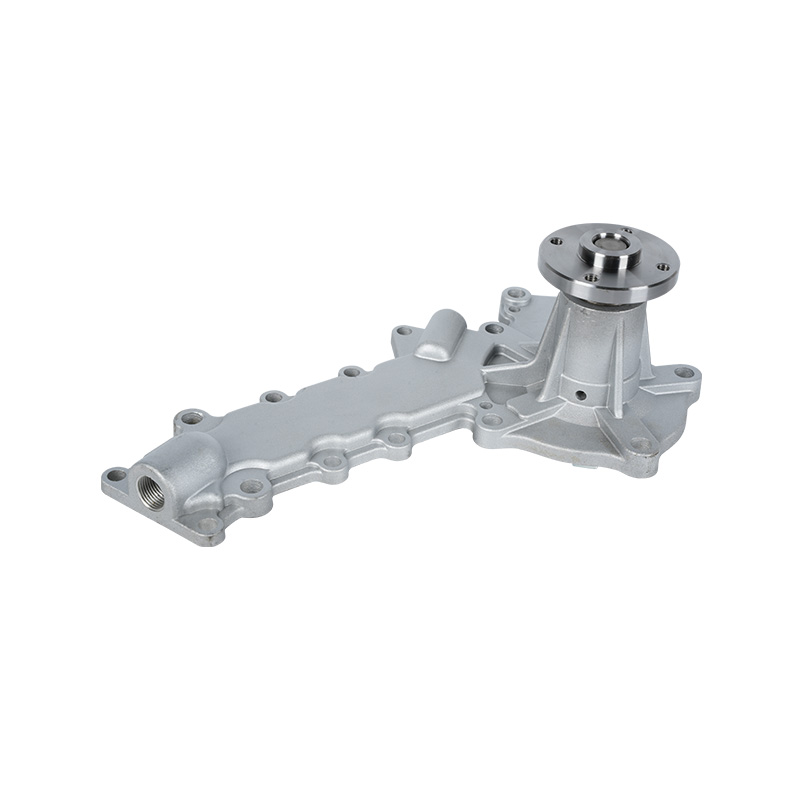The role of the Diesel Engine Agriculture Water Pump in modern farming
Water is an indispensable resource for agriculture, and the efficient management of this resource is essential for the success of any farming operation. The Diesel Engine Agriculture Water Pump is a critical piece of equipment that has been widely adopted in the agricultural sector due to its reliability and efficiency.
Agriculture relies heavily on irrigation to ensure that crops receive the water they need to grow. In many regions, water sources are not always conveniently located near the fields that require watering. This is where the Diesel Engine Agriculture Water Pump comes into play. It is designed to move water from lower-lying areas, such as wells, rivers, or reservoirs, to higher ground where crops are planted. This process is crucial for maintaining consistent crop yields and ensuring food security.

Operational Characteristics of Diesel Engine Agriculture Water Pumps:
Diesel engines are chosen for their power and reliability, making them ideal for powering water pumps in agricultural settings. These engines are known for their ability to operate in a variety of conditions, including those with limited access to electricity. The following are some of the operational characteristics that make Diesel Engine Agriculture Water Pumps a popular choice:
1. Durability: Diesel engines are built to withstand the rigors of outdoor use and can operate for extended periods without maintenance.
2. Fuel Efficiency: Diesel fuel provides a high energy output, which means that these engines can run for longer periods on less fuel compared to their gasoline counterparts.
3. Low Maintenance: While all machinery requires maintenance, diesel engines are known for their low maintenance needs, which is a significant advantage in rural areas where access to specialized services may be limited.
4. High Torque: Diesel engines produce a high amount of torque, which is essential for driving large water pumps that need to lift water against gravity over significant heights.
5. Versatility: These engines can be coupled with various types of water pumps, allowing for customization based on the specific needs of the farming operation.
The use of Diesel Engine Agriculture Water Pumps offers several benefits to farmers and the agricultural sector as a whole:
1. Increased Crop Yields: By ensuring a consistent supply of water to crops, these pumps help to increase overall crop yields, which is essential for feeding a growing global population.
2. Cost-Effective: While the initial investment in a diesel-powered water pump may be higher than other options, the long-term cost savings due to lower fuel and maintenance costs can be significant.
3. Environmentally Friendly: Modern diesel engines are designed to be more environmentally friendly, producing fewer emissions than older models. This is particularly important in agricultural settings where the health of the soil and water is crucial for crop growth.
4. Reliability: Diesel engines are known for their reliability, which is critical during peak irrigation seasons when water supply cannot be interrupted.
5. Scalability: These pumps can be scaled up or down depending on the size of the farming operation, making them suitable for smallholder farmers as well as large-scale commercial operations.
Despite their many advantages, there are also challenges associated with the use of Diesel Engine Agriculture Water Pumps. These include the fluctuating cost of diesel fuel, which can impact the operational costs of the pump, and the need for regular maintenance to ensure the engine's longevity. Additionally, the noise and potential environmental impact of diesel engines must be considered, especially in areas with sensitive ecosystems.
The Diesel Engine Agriculture Water Pump is a vital tool in the modern agricultural toolkit. Its ability to provide a reliable and efficient means of water transfer is essential for maintaining crop yields and ensuring food security.



 English
English 中文简体
中文简体


















